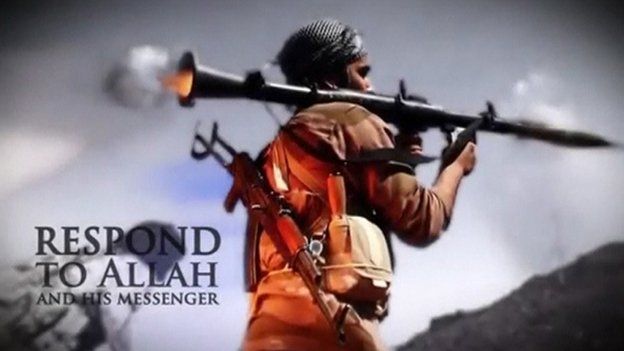EU plans new team to tackle cyber-terrorism
- Published

Plans for a new Europe-wide counter-terrorism unit are being presented to European ministers.
The Internet Referral Unit would be part of law enforcement agency Europol and would seek to remove jihadist content from the internet.
EU policy makers want to pool member states' resources to deal with the "sheer volume" of such material.
The Paris terror attacks had pushed the item up the EU's agenda, said a senior official.
"The internet is a major facilitator for radicalisation to terrorism. Addressing this matter poses a number of different challenges," a briefing document detailing the plans says.
It adds: "The sheer volume of internet content promoting terrorism and extremism requires pooling of resources and a close cooperation with the industry."
Extremist content
The proposal from European security officials is for an extension of an existing Europol tool used to store information on Islamist extremist websites into a continent-wide referral unit.
It will be presented to ministers from the governments of EU member states at a meeting of the EU's Justice and Home Affairs Council.
The new unit will be expected to flag "terrorist and extremist online content" and to support investigations by law enforcement agencies.
Under the proposals, which have come from the Latvian presidency of the council, each member state would be expected to nominate a partner authority to work with the new unit.
"This can be the national cybercrime or internet safety department, or a dedicated unit dealing with terrorist content on-line," the document says.
The council wants the unit to be operational by 1 June this year, with the funds being provided by member states.
'Urgency'
The news follows the attacks in Paris and the unmasking of Jihadi John as Mohammed Emwazi, who has appeared in numerous Islamic State propaganda videos posted online.
According to the Financial Times, Gilles de Kerchove - the EU's counter-terrorism chief - said: "[The Paris attacks] have added... urgency to countering the extremism problem. Dealing with material online is the first item on the agenda."
The newspaper reported that the EU unit would be modelled on the Counter Terrorism Internet Referral Unit (CTIRU), which was set up in 2010 by the UK's Home Office and Scotland Yard to prevent the spread of extremist content online.
The Home Office did not immediately respond to a request for comment.
- Published23 December 2014
- Published28 January 2015
- Published14 November 2014